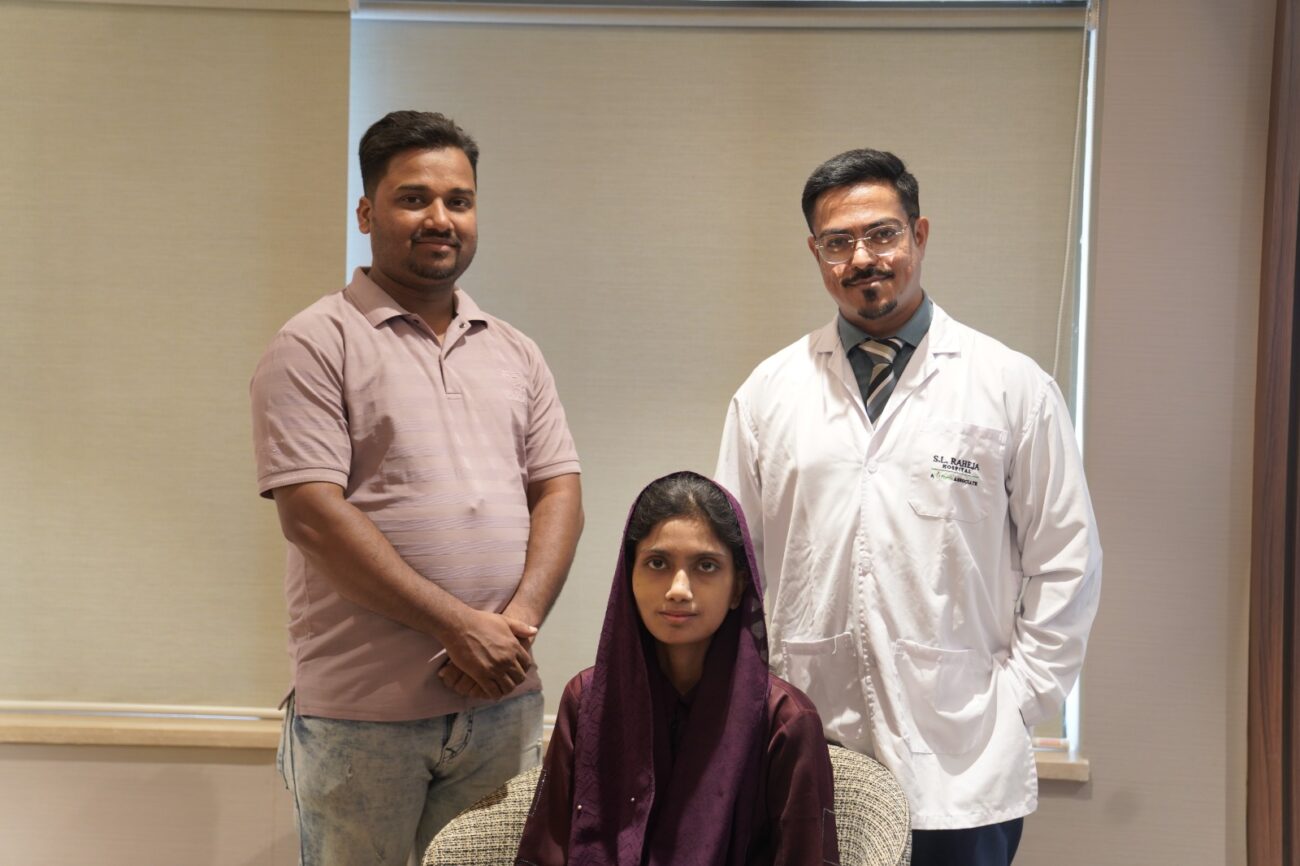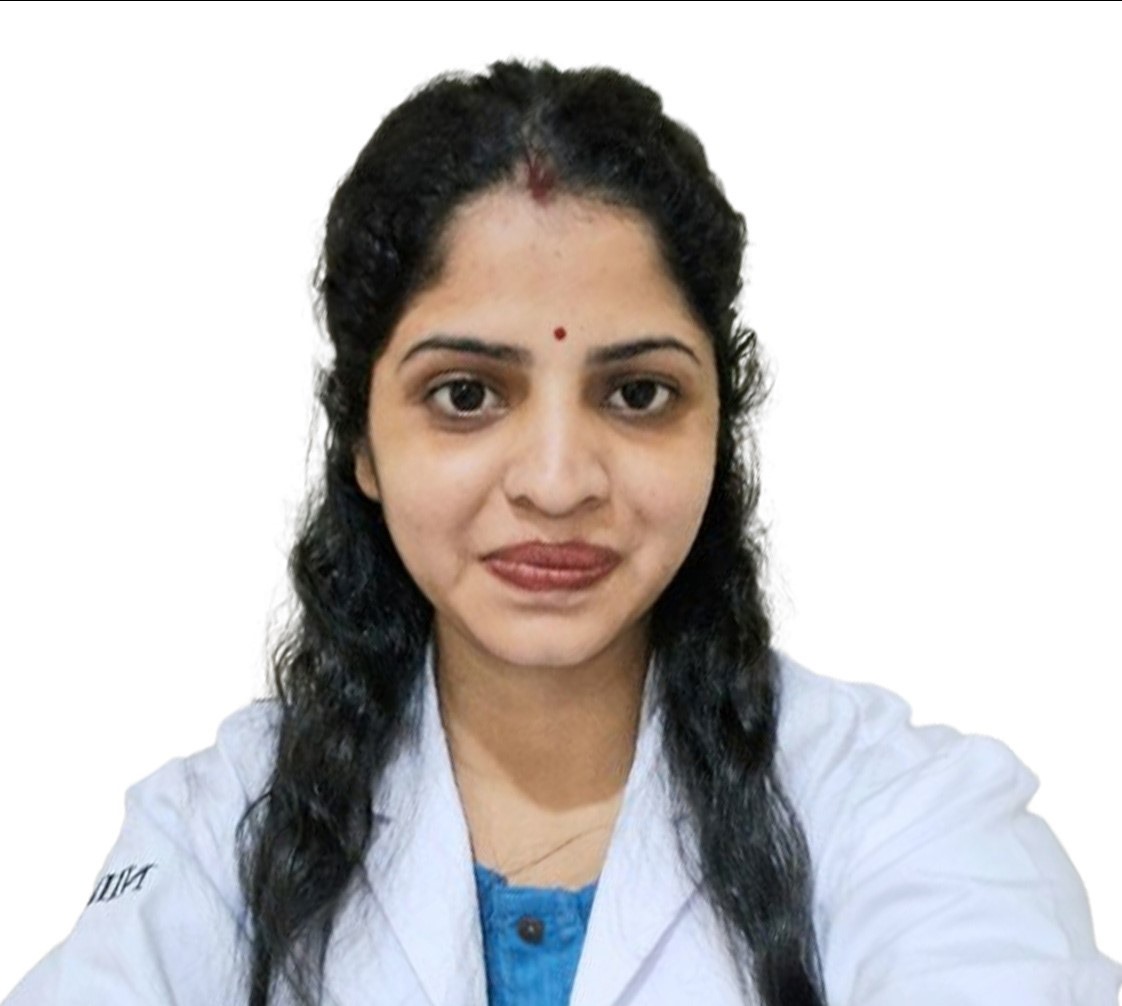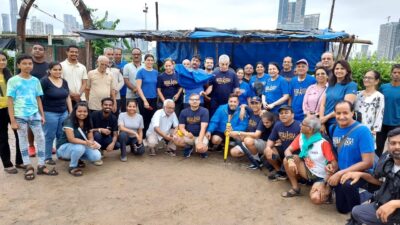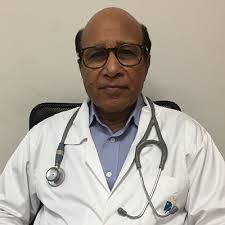Manipal Hospital Sarjapur, organises meet to discuss groundbreaking technologies in the field of Cardiology
Doctors from the Cardiac Science team discuss complex cases they performed using ground-breaking procedures Manipal Hospital Sarjapur, organized a press meet on December 20th to discuss complex cases in which cardiologists used advanced technologies to
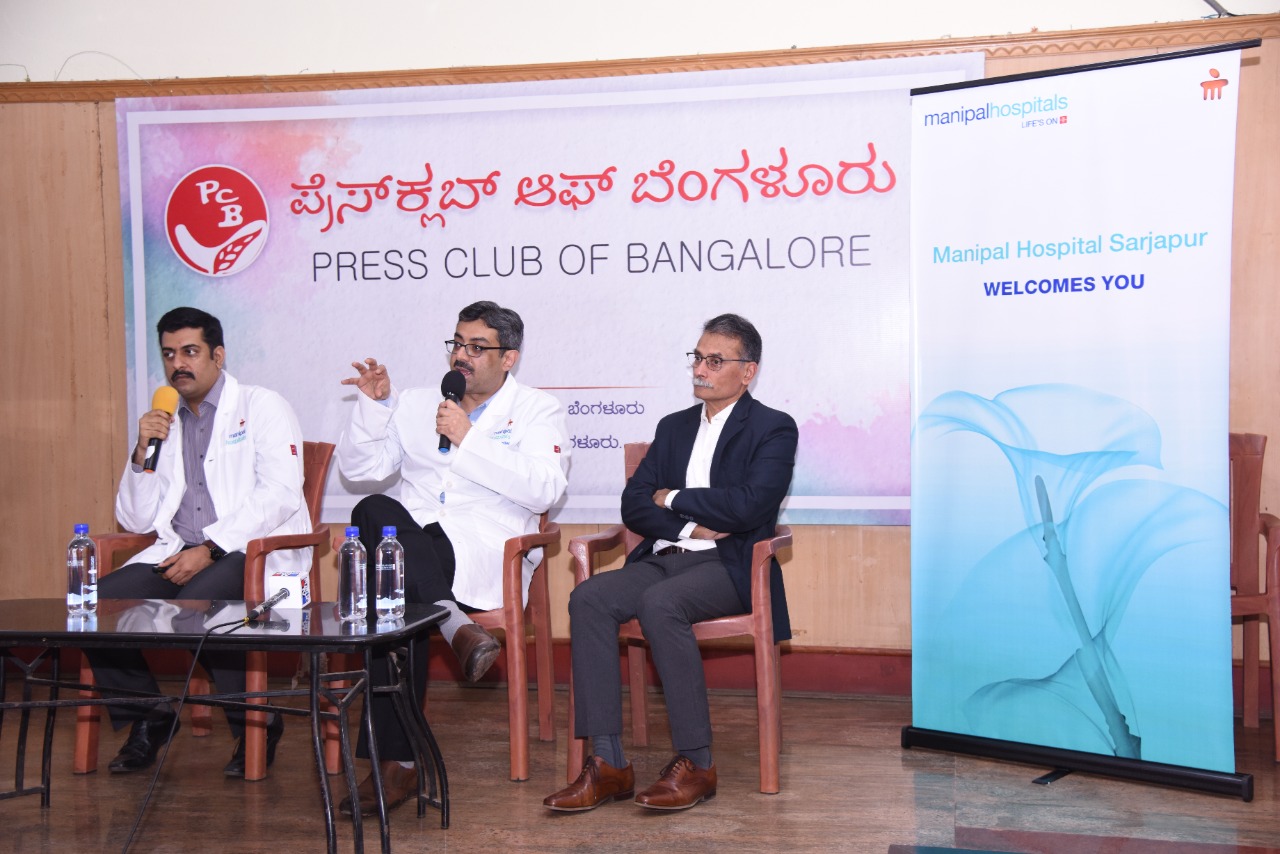
- Doctors from the Cardiac Science team discuss complex cases they performed using ground-breaking procedures
Manipal Hospital Sarjapur, organized a press meet on December 20th to discuss complex cases in which cardiologists used advanced technologies to treat patients. At the press meet, Dr. Saikat Kanjilal, Consultant – Interventional Cardiologist, Manipal Hospital Sarjapur, Dr. Suraj Narasimhan A, Consultant – Interventional Cardiologist & Structural Intervention Specialist, Manipal Hospital Sarjapur, and Dr. Joseph Xavier, Senior Consultant – Chief of Cardio Thoracic & Vascular Surgery, Manipal Hospital Sarjapur, discussed the ground-breaking procedures involving invasive and non-invasive technologies that were used. Some of the rarest cases they have performed includes alcohol septal ablation (a procedure to trigger artificial heart attack to loosen the muscles of the heart), left atrial appendage (procedure used to avoid clots and stroke), TAVR and more.
According to the World Health Organization, India accounts for at least one-fifth of the 17.9 million cardiovascular disease-related deaths worldwide. The increase in cardiovascular diseases (CVDs) is attributed to increased sedentary lifestyles, physical inactivity, stress, smoking, alcohol consumption, sleep deprivation and poor diet. According to experts, one of the main causes of heart disease and the most common reason given by doctors is an unhealthy lifestyle. Recent technological developments have made it easier to diagnose, treat, and effectively monitor patients with CVDs. Robotic or minimally invasive surgery shortens the patient’s recovery period while causing little tissue damage and blood loss.
Cardiologists at Manipal Hospitals have been part of recent breakthrough procedures using therapeutic and non-invasive techniques to treat rare conditions, such as hypertrophic cardiomyopathy (thickened heart muscle). It is an acquired or hereditary disease of the heart muscle that causes difficulty in the heart’s blood supply to the body and requires immediate medical attention. Left auricle or LA appendage atresia is another unique condition that is an alternative therapy given to people who cannot take blood thinners because of bleeding but are at risk of stroke.
Dr. Saikat Kanjilal, Consultant – Interventional Cardiologist, Manipal Hospital Sarjapur, said “Hypertrophic Cardiomyopathy is a genetic condition that can happen at any age, but gets mostly diagnosed at a later stage. One in 500 people have this condition, but most of these remain undiagnosed. Currently, medications, dietary modifications, or surgery are used to treat this rare disorder. This disease can cause abrupt cardiac arrest in patients under the age of 40. They may also have early coronary artery blockages, which might result in a heart attack. Although this syndrome typically causes sudden cardiac arrest in patients who participate in strenuous exercise or sports, in this case the patient would have inherited the problem. Therefore, those who exhibit signs of hypertrophic cardiomyopathy should see a doctor right away and start taking appropriate medications.”
At the meet, the doctors discussed some of the difficult cases they handled.
Dr. Suraj Narasimhan A, Interventional Cardiologist & Structural Intervention Specialist, Manipal Hospital Sarjapur, said, “The patient had a history of stroke along with irregular heartbeat and other comorbidities, putting him at risk of another stroke. Soon after understanding the severity of the case we started him on medications (blood thinners or anticoagulants) to prevent the stroke but that led to retroperitoneal bleeding. As a result, we discontinued the medication. As a quick solution to this problem, we decided to perform Left atrial appendage closure (an alternative therapy performed on individuals who are unable to take blood thinners because of bleeding) for the patient. The complexity of the issue at hand was discussed with the patient, and he agreed to go ahead with the procedure.
“While operating, we found that a clot was already formed inside the LA appendage. Delay in performing the procedure would have led to another stroke.”
Dr. Joseph Xavier, Senior Consultant – Chief of Cardio Thoracic & Vascular Surgery, Manipal Hospital Sarjapur, said, “Current advances in medicine and increasing awareness and health consciousness of people have led to increased life expectancy in India (70 years). We come across more and more octogenarians (above 80 years), in whom degenerative aortic valve disease is common. Replacing the diseased valve with an artificial valve, without doing an open heart surgery is a big advantage in this situation. This is called trans-catheter aortic valve implantation or TAVI or replacement TAVR.
“In this procedure, we puncture the artery of the leg at the groin with a needle and through that we thread a wire going all the way into the heart. Over that wire, we deliver a valve to the correct position, replacing the diseased valve by pushing aside the deceased valve. The whole procedure is completed in an hour’s time and the patient can be discharged from hospital after two days. We have successfully done three such cases at Manipal Hospital Sarjapur Road, of which one gentleman was 93 years old. He the oldest patient in Karnataka to get this procedure done.”
With the help of advanced technology, doctors can easily determine whether a patient needs invasive procedure to clear a blocked artery, or whether non-invasive treatments, such as medications, will suffice.



